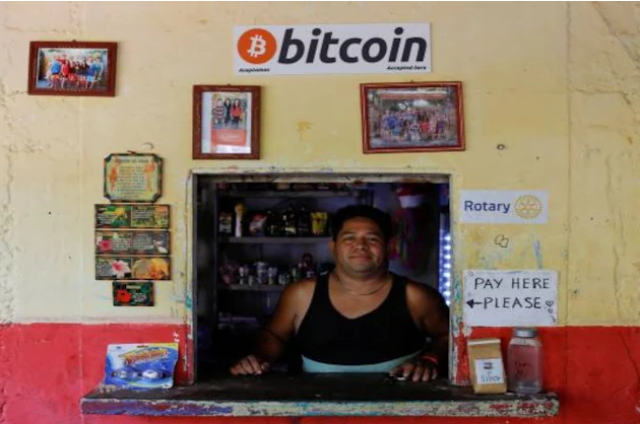
Photo by André François McKenzie on Unsplash.com
Cryptocurrency, as the name implies, is a type of currency developed through cryptography or code. Digital currency or cryptocurrency is revolutionizing transactions and eliminating banking. It is a medium of exchange, just like notes and coins are for rupees and dollars. “Crypto” means data encryption. It basically ensures the security of transactions. Unlike debit and credit cards, cryptocurrency has no physical counterpart; it is the only form that exists.
BRIEF HISTORY
Bitcoin, the best-known and the first introduced cryptocurrency has been in circulation since 2009, but the identity of its creator(s) remains a mystery to this day. Over the years, many people have claimed to be or have been called “Nakamoto”, but there’s still no clarity whether it’s one person or a group of people under the pseudonym, Satoshi Nakamoto.
TECHNOLOGY
Blockchain is the technology that enables the creation of cryptocurrencies. Blockchain technology was originally created as a way to transfer value, especially within the context of the cryptocurrency Bitcoin. Blockchain operates across a vast network of computers and is not exclusive to cryptocurrencies; it has many uses. As such, uses of blockchain include payments and other financial transactions. Blockchain technology is decentralized, meaning there’s no third party controlling it. Instead, it is regulated by its own community of users where all of them record all of their transactions at the same time. Any attempts to fool the cryptocurrency community will ideally get noticed and the payment will get rejected.
TYPES OF CYPTOCURRENCIES
HOW TO USE CRYPTOCURRENCY
ADVANTAGES
Cryptocurrency provides some potential benefits to its users, including:
1. User Autonomy – No single user, government, bank, or credit card company can force a fee on your payment or control its flow.
2. Security – Cryptocurrencies are said to be secure from the effects of currency debasement and inflation.
3. Low Fees for International Transactions – Since cryptocurrency transactions have no intermediary institution or government involvement, the transaction costs are very low which can be a major advantage for travelers.
4. Peer-to-Peer Transaction – The cryptocurrency payment system is purely peer-to-peer, i.e., the users can send and receive payments from anyone on the network without requiring approval from any external authority.
RISK AND CHALLENGES
Cryptocurrencies, both fascinating and attractive, have unfortunately proven to be often involved in illegal practices. With users interacting on a peer-to-peer basis, it was often utilized by illicit players who realized that committing a crime has become much easier since the invention of the new phenomenon.
1. Scams and Market Abuse – Start-ups quickly realized that they can raise money without offering anything meaningful in exchange. As a result, entrepreneurs wishing to get funding indulged in various malpractices including scams with impossible or illogical value propositions.
2. Ransomware Attacks – Hackers have started requesting cryptocurrencies as a new form of bribery in case of ransomware attacks. The attractive characteristics of cryptocurrency, such as fewer transaction costs related to currency exchange or international transfers, make it more viable to hackers as opposed to regular financial instruments. It also becomes easier for the hacker to hide his real identity.
3. No Refund or Cancellation Policy – Cryptocurrency transactions are irreversible. Once you’ve paid, you will not get a penny back. If someone makes a transaction by mistake, the coin cannot be retrieved by the sender. As a result, one can be easily cheated for a transaction whose product/service she never received.
4. High Market Volatility – Cryptocurrency is highly volatile, meaning its value keeps fluctuating. In crypto markets, this volatility has possibly caused losses to investors, but it has also turned investors “billionaires” overnight.
CRYPTOCURRENCY IN INDIA

As per the blockchain data firm, Chainalysis, India ranks 11 out of 154 nations in terms of cryptocurrency adoption. Indians had invested nearly 6.6 billion USD in cryptocurrencies until May 2021. This shows how Indian investors are flocking the crypto market.
Many believe that more Indians, particularly the young and tech-savvy, are likely to flock to digital currency soon. However, India’s cryptocurrency boom, in the absence of stringent guidelines from the government or the central bank, could be a dangerous one. This is because the Indian government’s past relationship with cryptocurrencies hasn’t been a good one.
On 6 April 2018, the central bank had prohibited banks from dealing in cryptocurrencies or offering any service to customers in them. However, in March 2020, the Supreme Court verdict lifted the “services” part. This led to a significant rise in demand for cryptocurrencies. The central bank in the past had clarified that it won’t take responsibility if the digital transactions go wrong or fraud takes place.
FUTURE OF CRYPTOCURRENCY

Cryptocurrency has moved past the early adoption phases that new technologies experience. Cryptocurrencies are still in their infancy, and it is difficult to see if they will ever find a true mainstream presence in the world markets.
Some countries, like Iceland, have even begun to start their own national cryptocurrencies while El Salvador has made Bitcoin its legal tender. The future may hold a place for cryptocurrency as a major solution. The markets in Europe and Latin America are exploding with Bitcoin transactions, signifying true credibility.
However, cryptocurrency skeptics say there is good reason to believe that governments will eventually ban all cryptocurrencies. They argue that governments around the world, along with their central banks, will not allow the dilution of their monopoly power over money.
. . .
References:
- https://www.investopedia.com/
- https://www.geeksforgeeks.org/
- https://scroll.in/
